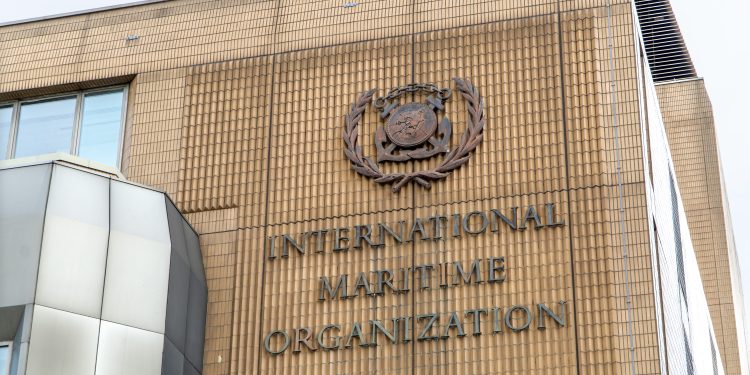IMO Secretary General, Kitack Lim made an address at the opening of MEPC 78, noting that this week’s discussions will be crucial for shipping’s decarbonization.
Firstly, Mr. Lim noted that the global maritime community remains seriously concerned about the safety and welfare of seafarers in the area of the Black Sea and Sea of Azov and the possible impact on the marine environment, in the wake of the ongoing armed conflict in Ukraine.
The Emergency Task Force I established in the Secretariat continues to monitor the situation and advise accordingly. I encourage all Member States and observers to continue to share relevant information and collaborate, with a view to taking necessary steps to ensure the protection of seafarers, ships and the marine environment at this time of ongoing heightened tensions
As for COVID-19, he noted that “it is now more than two years since the COVID-19 pandemic hit the world, we will continue to work with governments, industry and other international organisations to ensure that any recent positive trends are sustained and to examine the lessons learned for shipping and for seafarers.”
[smlsubform prepend=”GET THE SAFETY4SEA IN YOUR INBOX!” showname=false emailtxt=”” emailholder=”Enter your email address” showsubmit=true submittxt=”Submit” jsthanks=false thankyou=”Thank you for subscribing to our mailing list”]
However, he noted that the main topic for discussion is the reduction of GHG emissions from international shipping.
Recent reports from the International Panel of Climate Change (IPCC) and other relevant bodies have made it clear that we are no longer considering climate change as impacting future generations, but with the very real and present threat to our generation. We need to work together, embracing multilateralism in addressing climate change and promoting regional and international cooperation to strengthen climate action
As Mr. Lim explained, while progress has been made on many of the measures set out in the Initial Strategy, further action is needed.
Your discussions this week will chart the way forward for the decarbonization of international shipping. It is therefore of utmost importance that IMO continues to deliver concrete progress in transitioning international shipping from fossil fuels to low and zero-carbon alternatives
For this reason, he said that it is shipping’s duty to join worldwide commitments of increased ambition towards tackling climate change.
Now we must be brave and let our industry lead by example and provide substantial progress in our work
Regarding ballast water management, IMO Sec-Gen mentioned that this session is particularly significant, as it will consider, among other issues, the data analysis report of the experience-building phase associated with the BWM Convention and decide on the way forward with regard to the next stage of this very important process, entailing the comprehensive review of the Convention.
Furthermore, MEPC will consider the adoption of updated guidelines for brief sampling, inspection, and survey and certification of anti-fouling systems on ships, following the adoption, in 2021, of amendments to the AFS Convention to include controls on cybutryne.
The Committee will also be invited to consider the approval of draft amendments to MARPOL to allow States with ports in the Arctic region to enter into regional arrangements for port reception facilities






























































